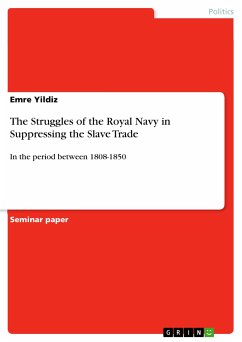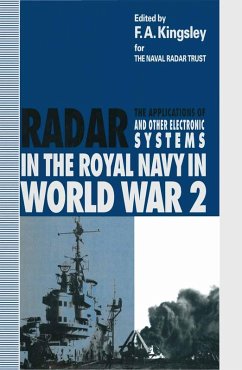Seminar paper from the year 2013 in the subject Politics - Region: Western Europe, grade: 1,00, Jacobs University Bremen gGmbH (School of Humanities and Social Sciences), course: International Relations of the 19th Century / Internationale Beziehungen im 19. Jahrhundert, language: English, abstract: Once the abolishment campaign started in 1806, the British increasingly engaged in persuading other countries to cease their trades in slaves, and further, by employing naval forces as of 1808 the British actively pursued the implementation of the prohibition laws in West Africa's Atlantic regions. However, thirty years after the Navy had started its counteracting work, by looking at the achievements of the Royal Navy, the British Parliamentary Committees saliently concluded that the suppression had been a failure so far. What were the difficulties the British Navy faced and made their activities considered as unsuccessful? While scholars dealt thoroughly with the Atlantic Slave Trade and its suppression between 1808 and 1867, little attention has been paid to the various limitations and difficulties the Royal Navy had to operate under in the first four decades of its commence. This essay aims to provide an understanding as to why the British Navy had achieved so little initially in suppressing the forced migration of slaves from Africa to the Americas. It will look at a variety of aspects and factors, which seem to play a significant role in exacerbating the Navy's operation until 1850. It will argue that the interplay of these factors is mainly responsible for preventing the Navy from working effectively against the Atlantic Slave Traffic.
Dieser Download kann aus rechtlichen Gründen nur mit Rechnungsadresse in A, B, BG, CY, CZ, D, DK, EW, E, FIN, F, GR, HR, H, IRL, I, LT, L, LR, M, NL, PL, P, R, S, SLO, SK ausgeliefert werden.









